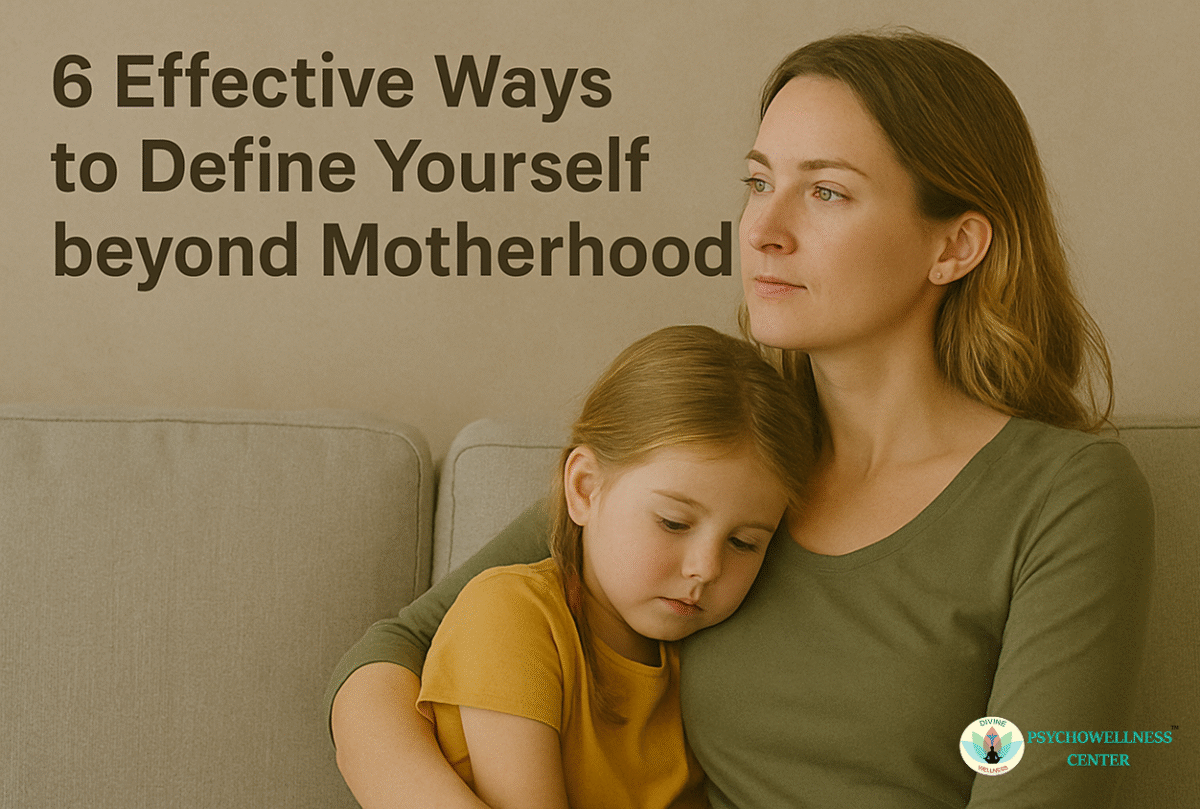Motherhood is a transformative journey—profound, challenging, and beautiful. It is often seen as a core part of a woman’s identity. However, as fulfilling as it may be, motherhood can sometimes eclipse a woman’s sense of self beyond being a parent. Many mothers—especially new or full-time mothers, find themselves asking, ‘Who am I outside of being a mom?’
The truth is: ‘you are more than a mother’. You are a woman with passions, dreams, talents, and a unique voice. Reclaiming your identity beyond motherhood is not selfish—it’s essential for your well-being and your ability to parent with authenticity and strength.
Six powerful ways to define yourself beyond motherhood:
1.Reconnect with Pre-Motherhood Passions
Before diapers, school runs, and parent-teacher meetings, who were you? What lit you up?
Maybe you loved painting, dancing, coding, writing poetry, or volunteering for causes. Take time to revisit those passions—even if it’s just for 30 minutes a week. These interests are part of your identity and can serve as a grounding force amidst the unpredictability of parenting.
Why it matters: According to Erikson’s theory of psychosocial development, adults thrive when they find balance between care for others and personal growth (Erikson, 1963). Investing in your passions fosters a sense of autonomy and fulfilment.
2. Pursue Personal Learning and Growth
Motherhood can often make women forget that their intellectual and emotional development still matters. Whether it’s taking a short course, reading a book unrelated to parenting, or learning a new skill like photography or financial planning, these activities remind you that your mind and abilities extend beyond caregiving.
Try this:
- Join an online course on a topic you’ve always wanted to explore.
- Attend local workshops or book clubs.
- Subscribe to podcasts or TED Talks in areas of interest.
Evidence shows that lifelong learning enhances cognitive function, boosts self-esteem, and increases emotional resilience (National Academies of Sciences, 2017).
3.Build Your Supportive Identity Circles
Surrounding yourself with people who value you as more than just a mom is essential. Connect with communities—online or offline—that nurture your interests, talents, and aspirations. Whether it’s an art collective, a professional network, or a spiritual group, belonging to diverse identity circles enriches your self-perception.
Real-life example: Neha, a mother of two and a former graphic designer, joined an online design community. Through casual projects, she regained confidence in her skills and eventually began freelancing again—on her terms.
4.Explore or Reignite a Career Path
For many, career aspirations take a backseat during the early stages of motherhood. However, defining yourself through your professional identity—whether part-time, freelance, entrepreneurial, or full-time—is a meaningful way to express your skills & goals and a step towards self-improvement.
Even if you choose not to return to a traditional job, consider:
- Freelancing in your area of expertise.
- Mentoring younger professionals.
- Starting a blog or podcast about a topic you love.
A study published in the Journal of Family and Economic Issues (2010) found that mothers who re-engaged with work reported greater life satisfaction and self-worth when supported in their pursuits.
5.Prioritize Self-Care Without Guilt
Motherhood often idealises self-sacrifice, but redefining yourself means honouring your needs without guilt. Taking care of your body, mind, and spirit isn’t indulgent—it’s sustaining.
Include regular practices such as:
- Mindfulness or meditation.
- Physical movement (dance, yoga, walks).
- Therapy or journaling.
- A weekend getaway or a solo coffee date.
Dr. Kristin Neff, a pioneer in self-compassion research, emphasises that self-care is an act of self-respect, especially for mothers who give so much of themselves to others (Neff, 2011)
6.Rewrite the Narrative: You Are Not Just a Mom
Language shapes identity. “Just a mom” is a condescending term that minimizes the complexities of parenting and gender. Instead, begin owning all the roles you hold:
- I’m a mother and a writer.
- I’m raising children and growing myself.
Journaling prompt: List five qualities about yourself that have nothing to do with motherhood. How do they show up in your daily life?
Research in narrative therapy suggests that when people rewrite their life stories to reflect a broader sense of identity, they experience improved mental well-being and purpose (White & Epston, 1990).
Conclusion
Being a mother is a wonderful chapter, but it’s not the whole narrative. You are allowed—and encouraged—to nurture your individuality alongside raising your children. In doing so, you not only live more fully but also model to your children what it means to live with balance, authenticity, and joy.
It might be time to get help if you keep being sucked into emotionally draining relationships or recurring patterns of psychological pain. Qualified therapists at the Psychowellness Center in Janakpuri and Dwarka Sector-17, Delhi, offer specialised help in understanding and overcoming complex issues like repetition compulsion. For those preferring the privacy and comfort of home, TalktoAngel connects individuals to top psychologists across India—including the “best psychologist near me”—through secure online therapy. One of the most powerful decisions you can make is to take back your emotional space, which is the first step in ending the pattern.
You are a mother.
You are also a thinker, a creator, a dreamer, a doer, a friend, a learner, and so much more.
Developed with valuable insights from Dr. R.K. Suri, a respected expert in clinical psychology, and Mrs. Chanchal Agarwal, a committed counseling psychologist
This blog was posted on 24 July 2025
References
Erikson, E. H. (1963). Childhood and Society. New York: Norton.
Neff, K. (2011). Self-Compassion: The Proven Power of Being Kind to Yourself. New York: HarperCollins.
White, M., & Epston, D. (1990). Narrative Means to Therapeutic Ends. Norton & Company.
National Academies of Sciences, Engineering, and Medicine. (2017). How People Learn II: Learners, Contexts, and Cultures. Washington, DC: The National Academies Press.
MacDonald, A. L., & Kutscher, R. (2010). Women’s employment patterns post-childbirth. Journal of Family and Economic Issues, 31(3), 294–307.
Prenatal Maternal Stress – Psychowellness Center
What is Mother Wound ? – Psychowellness Center

